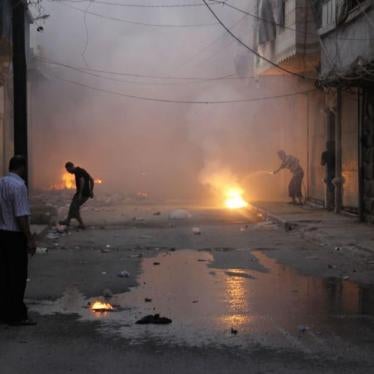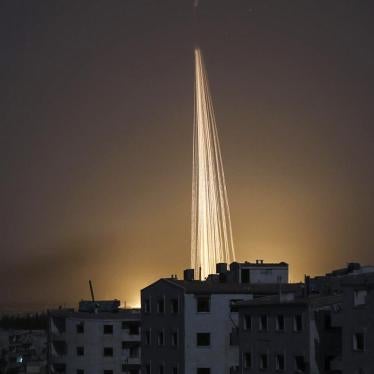On behalf of: Article 36, Asociación para Políticas Públicas, Campaña Colombiana Contra Minas, Conflict and Environment Observatory, Harvard Law School International Human Rights Clinic, Human Rights Watch, Mines Action Canada, PAX, Seguridad Humana en América Latina y el Caribe (SEHLAC), and Women’s International League for Peace and Freedom
High school student Muhammed Assi experienced excruciating burns and severe respiratory damage when an incendiary weapon landed on his school in Syria in 2013. Eight years later, he lives with physical disabilities associated with scars over 85 percent of his body and faces the stares of strangers.
His teacher Abu Taim escaped physical injury but was so psychologically traumatized that he fled the country and still has nightmares of seeing the scorched bodies of his students. He also lost his career because he remains unable to cope with a return to the classroom.
Their stories exemplify the immediate and lifelong suffering caused by incendiary weapons, one of the cruelest means of contemporary armed conflict. We call on states to condemn the use of incendiary weapons and strengthen international law to prevent such harm in the future.
While the pandemic delayed diplomatic talks on this topic last year, 2021 provides a key moment to take concrete action toward stronger law. At their Review Conference in December, high contracting parties to the Convention on Conventional Weapons (CCW) will be able to discuss the status and operation of the convention’s third protocol, which regulates incendiary weapons.
As recent use shows, Protocol III has failed to achieve its humanitarian goal of protecting civilians. States parties should close its loopholes by:
- Adopting an effects-based definition that encompasses multipurpose munitions, notably white phosphorus, and
- Ensuring that the protocol prohibits all incendiary weapons in concentrations of civilians, regardless of their delivery systems.
To advance this process, we urge states at the First Committee:
- to highlight the humanitarian concerns of incendiary weapons and the need to strengthen international law,
- to call for both a formal review of Protocol III, and amendments to address the negative humanitarian impacts of incendiary weapons.
At their upcoming Review Conference, CCW high contracting parties should adopt a mandate to assess the adequacy of Protocol III, including through the establishment of an informal meeting of experts. They should not waste this opportunity to take a first step toward amending the protocol and preventing future attacks like the one that inflicted a lifetime of hardship on Muhammed Assi and Abu Taim.








